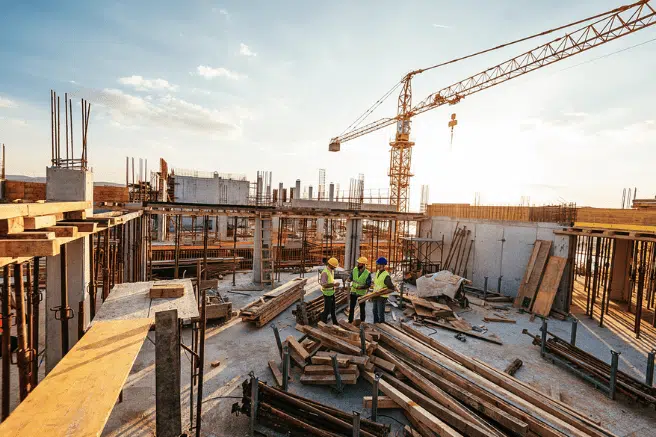Earlier this month as part of the 2023-24 Federal Budget, Treasurer Jim Chalmers announced a range of measures aimed at increasing affordable housing and addressing issues facing the critical property and construction sector.
Expanding build-to-rent (BTR) housing and increasing the supply of new, affordable homes
Encouraging foreign investment in the BTR sector is a big step forward in alleviating the shortage capital invested into residential construction in Australia.
Newly qualified BTR developments that commence construction from 7.30pm AEST on 9 May 2023 will have an increased rate for the capital works tax deduction (depreciation) to 4% from 2.5%.
Halving the final withholding tax on eligible fund payments from Managed Investment Trust (MIT) investments from 30% to 15% sees Australia fall into line with other western nations and should attract significant new investment into the sector. The flow on impact of this will include:
- More work for the residential construction industry
- Increased confidence in the supply of residential housing in a volatile market, and
- Better supply of affordable housing for long term renters reducing the cost wastage of constant displacement.
Broadening the first home guarantee scheme
From 1 July, the Federal Government will expand the eligibility criteria of the Home Guarantee Scheme so that friends, siblings and other family members will be eligible for joint applications. Previously the scheme was only available single applicants, married couples or those in a de-facto relationship.
Non-first home buyers will also be able to access the scheme, as long as they haven’t owned a property in Australia in the last ten years. And eligible borrowers who are Australian Permanent Residents will also be able to access this Scheme, the Family Home Guarantee Scheme and the Regional First Home Buyer Guarantee Scheme.
These expansions present as a practical continuation of the scheme that seems to be working well to get entrants into the market. As the costs of construction continue to spiral, providing practical steps to help new entrants into the housing market should encourage continued supply of hosing at those levels while Australia continues to struggle to meet the demand.
One side effect that may need to be considered is the medium- to long-term impact of accessing the principal place of residence exemption from capital gains. If multiple parties to a property change their intention or purchase subsequent properties as their lifestyle changes, there may be some unintended tax consequences that could be triggered, in part by the illiquidity of selling property.
Household Energy Upgrades Fund
To support home upgrades that improve energy performance, the Federal Budget has earmarked 1.3 billion in funding to establish the Household Energy Upgrades Fund.
The majority of this investment, $1 billion, will fund the Clean Energy Finance Corporate to provide low-cost finance and mortgages in partnership with private financial institutions for home upgrades that save energy. The remaining $300 million will be held within a Contingency Reserve to support upgrades to social housing that will achieve energy reduction.
Improving the energy efficiency of Australian construction should help provide better available housing stock and the improved performance of the electricity grid will hopefully lead to improved performance in the construction sector more broadly.
Migration and skills shortages
Although net migration is projected to increase dramatically, it seems little of this will be to help address the chronic skills shortage of tradespeople. The further restriction on international students of working also does little to address this challenge.
As a result, the cost to construct and the time delays being experienced in the construction sector are likely to continue for the foreseeable future. This will further diminish the available levels of housing stock and have negative impacts on rental availability, as well as seeing continued in inflation in housing prices and rental rates.
If your business operates in the property and construction sector and you’re looking for trusted advice, contact one of William Buck’s specialist property advisors.























